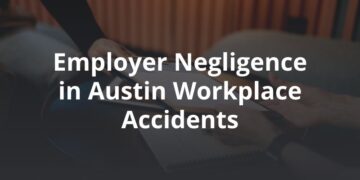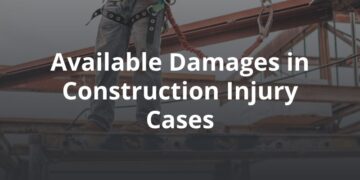Texas oil and gas production is booming and reaching new heights of prosperity: between January and September of 2019, production surpassed 1.2 billion barrels. The industry is breaking records and contributing to job growth.
Unfortunately, the demand for oil and gas has increased production pressure, leading many companies to cut corners and commit egregious safety violations that can endanger their workers and lead to deaths that could have been prevented.
According to the Occupational Safety and Health Administration (OSHA), 489 oil and gas workers were killed on the job from 2013 to 2017. This includes oil and gas extraction workers, workers from other industries doing work in oil and gas extraction, and crude oil and natural gas haulers.
Accidents included in these statistics involved:
- Vehicle accidents
- Struck-by / caught-in / caught-between
- Explosions and fires
- Falls
- Confined spaces
- Chemical exposures
Centers for Disease Control (CDC) data shows that Texas in particular saw 45 cases of fatal injuries in the industry from 2015 to 2016.
Oil and Gas Industry Exemptions and Violations
Oil and gas workers are well aware of the occupational hazards associated with the industry, but the lack of adequate safety regulations means that awareness of the dangers does not always sufficiently protect them.
Standardized safety regulations proposed by OSHA were largely opposed by industry lobby groups, who argued that the regulations would be too expensive to instate and enforce. The resistance was successful — the oil and gas industry still does not have an industry-specific standard even though the efforts to introduce one began in the early 1980s. It is governed by general industry standards, which are woefully inadequate when applied to such inherently hazardous work.
Lobby groups’ resistance to rigorous regulations resulted in several key exemptions for oil and gas from OSHA, EPA, and DOT (Department of Transportation) rules. For example, it is exempt from process safety management of highly hazardous and explosive chemicals, noise rules, and rules requiring machines to have their power turned off while being serviced, among others.
Even though OSHA’s general duty clause states that companies must provide a “place of employment free of recognized hazards that cause or are likely to cause death or serious physical harm to employees,” oil and gas companies frequently commit serious safety violations and receive a citation and fine, which they may contest.
A Center for Public Integrity analysis of OSHA data found that OSHA cited 10,873 violations in the extraction industry from 2008 to October of 2018. Three percent were classified as “repeated,” meaning the companies in question had already been cited in the past and were not sufficiently deterred from repeating dangerous mistakes.
Oilfield Injuries and Oil and Gas Transportation Accidents
In addition to the typical risks of operating heavy machinery in the oilfields, industry exemptions regarding exposure limits to hazardous substances mean workers could come into contact with dangerous levels of hydrogen sulfide, an explosive chemical, or benzene, which is associated with a range of acute and long-term health problems.
But dangers lurk on and off the oilfield. Motor vehicle crashes are the leading cause of work-related fatalities, and the gas and oil industry is no exception. Long commutes and tight schedules result in vehicle operators driving while fatigued. Drivers of vehicles used exclusively to service oil and gas wells are exempt from certain hours-of-service (HOS) rules that require a 34-hour rest time after 60 or 70 hours on duty — and their wait times at well sites are not counted toward their HOS on-duty hours. That means oil and gas drivers are pushing their physical and mental limits to stay on schedule, endangering everyone on the road.
Contact an Oil and Gas Accident Lawyer
If you or a loved one were involved in an accident related to the oil and gas industry, an oilfield accident lawyer can help you obtain compensation and damages. Our experienced team understands that the days, weeks, and even months after an accident can be a trying time. We are here to help oil and gas accident victims understand their rights and receive what they deserve from the companies that wronged them. Contact us today to schedule a no-cost, pressure-free evaluation and receive guidance on your best steps forward.







